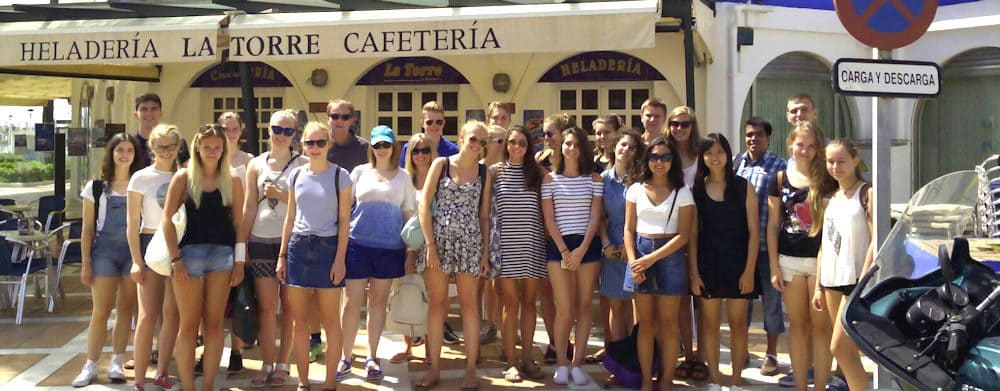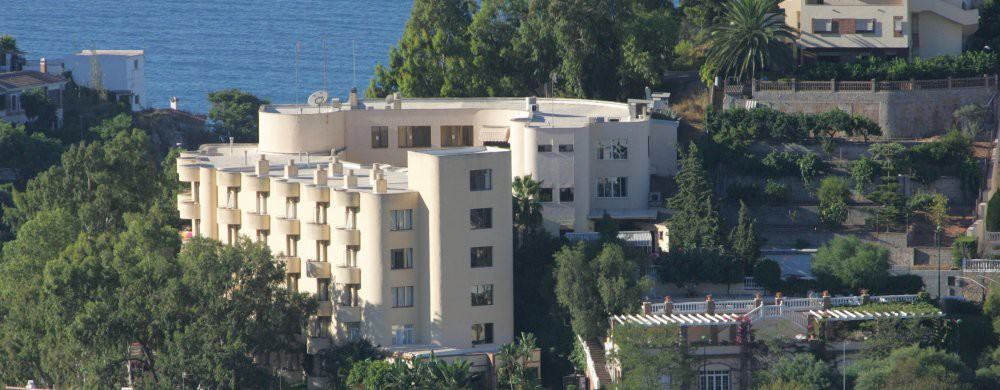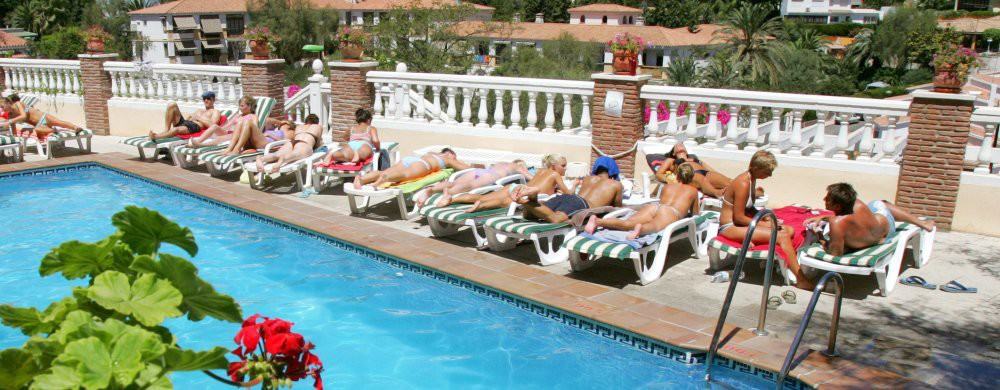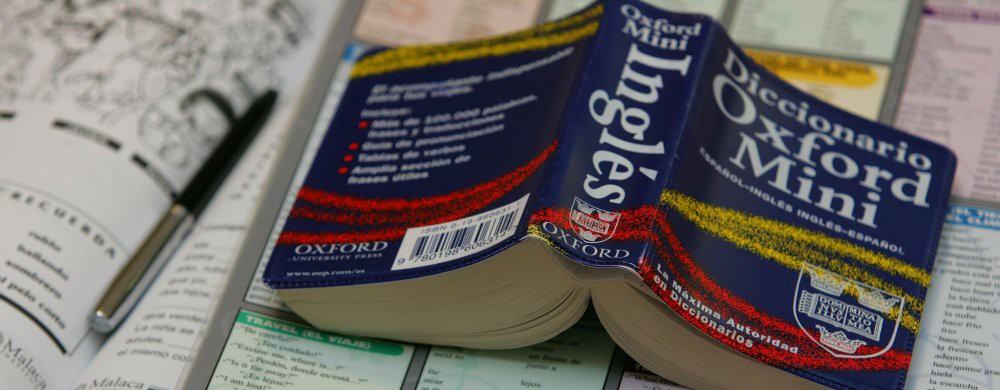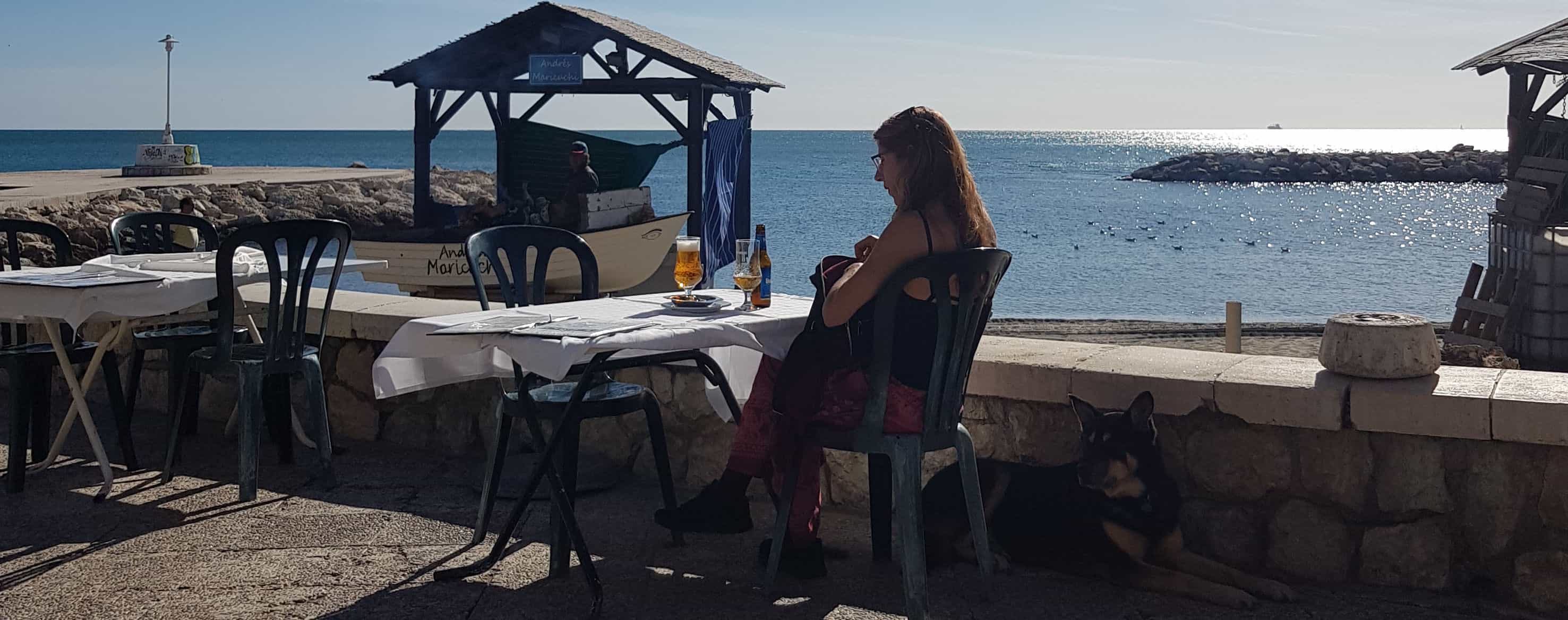Learn Spanish in Malaga: Teaching
Let’s talk Spanish in Malaga!
Students are encouraged to speak Spanish and only Spanish from the very first day. You will also cover the four core skills of speaking, listening, reading and writing, with structured learning of grammar and vocabulary work included to develop all the essential Spanish language skills.
We know speaking only Spanish in class sounds daunting to beginners/elementary students, but believe us – it’s the best way. A few weeks of having to use just Spanish and mentally adjusting to this arrangement will do wonders for your linguistic confidence and general ability (but that doesn’t mean it won’t also be frustrating at times). Up to six teachers teach students so that they can hear differing accents, see differing teaching methods and encounter different personalities.
Progress = Practise (and inevitably there will be times when you’ll have to be patient with yourself).
School levels of ability
The curriculum is structured on 10 theoretical language levels, with a natural duration of between two and six weeks at each level. This involves elements of traditional teaching methods and classroom activities such as language games, pair work and role-plays aimed at developing communicative fluency. The methodology is the result of years of experience in the intensive teaching of Spanish. Every day according to the progress of the class and syllabus, a new area of language is introduced and practised.
Rate of Progress
A student of average linguistic ability should allow around 6/8 weeks to complete the A1/A2 modules , covering basic grammatical structured knowledge to be able to communicate in the practical situations of daily life plus an introduction to Spanish customs.
Approximately 8 weeks will be required to complete the B1 modules with emphasis on grammar with reference to the past tenses and development of conversation skills (and at B1 Module 2/3 level, an introduction to the subjunctive).
Generally an additional 12 weeks covers the B2 modules (deepening grammatical skills, providing fluency in conversation and a deeper knowledge of Spanish culture, also written expression and the creation of texts.
A further 6 weeks to cover the C1 level, and a final 6/12 weeks+ to complete the C2 level with a specialised level of grammar and the study of the Spanish language.
Of course all this is based on the average student, who attends all classes, completes all assignments and is prepared to work consistently at improving their Spanish. A real student will actually make great strides at times, and then plateau for a while before seeing further results (so please, this is for guidance, not a hard and fast set of rules!). In reality students chose to attend a short course or a longer Languages for Life or Academic Term/Year course according to their linguistic goals, personal wishes and time constraints.
Teaching Approach
The Spanish school in Malaga offers a wide range of different courses with differing objectives, so the teaching style varies according to the type of course undertaken. On all courses the teacher-led classroom hours are supplemented by homework and any extra work a student wishes to do in the Study Centre.
Standard / Intensive / Gap Year / Summer Courses:
The objective on these courses is to master all aspects of the language at your particular level. The approach which the school has evolved for these programmes is an eclectic one combining the best aspects of the communicative approach with structured learning of grammar and syntax.
As students are not generally aware of the technicalities of language learning they tend to see progress in terms of grammatical items covered and feel more comfortable when they are able to see where they are in their progression towards mastering the structure (grammar) of the language.
Each day has a grammatical item which is themed throughout the day’s teaching. This item is presented formally and then the language skills and vocabulary are developed during the day using activities, role plays, video etc but always with direct or discrete reference to the day’s grammatical item.
The school’s highly experienced teachers ensure that this teaching is always fun, motivating and never boring.
Over 50s Courses:
The object of the Over 50s course, is to help the more mature student develop sufficient skills in Spanish to communicate in everyday situations, typically encountered on holiday in a Spanish-speaking environment.
The teaching is therefore focused on these situations: you will learn and practice the language needed to order drinks in a bar, order a meal, introduce yourself, go shopping in the market etc. This is frequently done through role-plays and the special activities programme gives plenty of opportunity to practise these newly acquired skills in real situations.
Private Tuition Courses:
These are special programmes which can take into account the specific objectives and learning needs of each client or group of clients. Course content and learning objects are therefore agreed on a case-by-case basis with each client.
DELE Examination Preparation Courses:
The focus of the 4-week course is to prepare the students specifically for the examination and uses past papers to practise.
| Duration in wks |
DELE A2 | DELE B1 | DELE B2 |
| 18 to 19 | — | — | Beginner |
| 16 | — | — | A1 |
| 14 | — | Beginner | A2.1 |
| 12 | — | A1.2 | A2.3 |
| 10 | Beginner | A2.1 | B1.2 |
| 4 | A2.1 | B1.2 | B2.2 |
Text books & materials
The school textbooks in Malaga are used on most of our courses. They have different courses with differing objectives so they also need textbooks and teaching materials of different types. The school’s materials currently include the following:
~ General Spanish
~ Over 50’s: a series of 4 textbooks for our 50s + students
~ Summer Course: a series of 4 textbooks for our young adults
~ Dimelo: course materials for developing oral fluency
~ Diplomats: course materials for Diplomatic Spanish
~ Spanish for Business: course materials for business executives
~ Primary and secondary teachers: specialist materials for
teaching Spanish to primary and secondary school students
In addition, the Multi-media Study Centre has a range of self-access materials created by the school’s teachers: worksheets, CDs, audio tapes, gap fill exercises etc. This enables each student to choose the area of language or culture they wish to improve or learn about and the medium in which to do it.
All the teaching materials are in a state of constant revision as the teaching approach continues to evolve and develop. This work is the responsibility of the Research and Development Department and adds a stimulating extra dimension to the work of the teachers.
First Day
Once the College has registered all the new students they will ask you to take part in a short oral and written assessment so that they can assign you to a class according to your linguistic level. Exactly how the rest of your first day proceeds depends on whether your programme will be held in the mornings or the afternoons. Throughout the year the following first day timetable is applicable to all students. At certain times of the year there are also classes in the afternoon. If you have afternoon classes the school will let you know.
First Day Timetable
• 10.00 hrs
Orientation tour of Malaga by coach.
Depending on the number of new students during the busy times of the year, there might be an afternoon orientation tour as well.
• 11.30 hrs (approx.)
Class groups are formed and lessons begin.
• 14.30 – 16.00 hrs
Level test for students with afternoon classes.
• 16.00 or 17.00 hrs
Orientation tour for afternoon students during the busiest time of the year.
Unless you have booked a prescribed afternoon programme i.e. the Summer Course, whether your lessons are held in the afternoon or the mornings depends on various factors and will be decided at the discretion of the school. The decisive factors being: your level of Spanish, the course you have booked, the nationality mix at the time in the school and your age.
Spanish Teachers in Malaga
The Spanish school in Malaga organises their teachers in teams and on the Standard and Intensive courses you will be taught by up to 6 different teachers in a 2 week course. This is to ensure that you hear different accents, see different teaching styles and encounter different personalities – this helps to ensure that the programmes are never boring. This structure requires a great deal of organisation and a lot of discipline on the part of the teachers in making sure they teach what is scheduled and communicate the results to the next teacher – but it works and the students definitely benefit from this system.
The quality of your teachers is probably one of the most important determining factors in the success or otherwise of your language course. The school usually has between 24 and 40 teachers depending on the time of year and number of students. The average length of stay of teachers is over 8 years and 15 of them have more than 15 years experience at the school. This is probably unique in a School of Spanish and provides an enormous wealth of experience.
Your teachers are also; educated to a high level, trained and experienced in teaching Spanish, well versed in the school’s teaching philosophy, required to be enthusiastic and highly motivated, professional and friendly.
To maintain the teaching skills and enthusiasm of the teachers the school organise in-service training which includes attendance on in-house, training sessions as well as conferences, workshops and courses provided by other training organisations. The more experienced teachers also have the opportunity to be involved in the creation of the textbooks.
Spanish Language Students in Malaga
The students come from all over the world and vary in age from 16 – 90 yrs! They can be a high school student, a teacher, an ambassador or a retired person. The school is a “mini-campus” so there is space for everyone and they have courses, accommodation options and activities specifically designed for each type of person.
Age and profile: The average age of the students all year round is about 28 years and in the Summer holiday period it drops to around 24 years of age. The school in Malaga hosts around 2500 students per year. The younger teenagers (16/17 yrs) of age tend to come out during the summer period.


